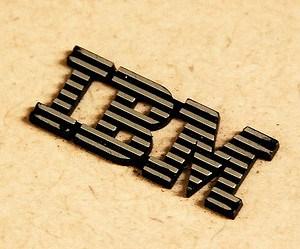
The quest to hold corporations liable for alleged human rights abuses committed abroad was dealt another blow late last month when a New York District Court judge tossed the last of the apartheid-related cases pending against two American corporations, Ford and IBM.
In a begrudging bow to current precedent, U.S. District Judge Shira Scheindlin, of the Southern District of New York, denied plaintiffs’ motion to amend their complaint because they would be unable to meet the stringent demands of a test announced by the Second Circuit Court of Appeals earlier in the year. More importantly, if the law of the Second Circuit becomes the law of the land, U.S. corporations could be effectively immune from civil liability for violations of international law that are perpetrated exclusively by foreign subsidiaries on foreign soil.
The Alien Tort Statute and a refresher on the Supreme Court’s Kiobel decision
The Alien Tort Statute (ATS) grants jurisdiction to U.S. District Courts “of all causes where an alien sues for a tort only in violation of the law of nation or of a treaty of the United States.” As I described in an earlier piece for TriplePundit, the question of the ATS’ application to corporations is muddy. In the seminal 2013 case, Kiobel v. Royal Dutch Petroleum (Kiobel), the Supreme Court affirmed the dismissal of a suit brought by Nigerian citizens who alleged that Shell and other oil companies aided in the Nigerian government’s violent suppression of resistance to drilling operations in Nigeria. In affirming the holding of the Second Circuit, the majority held that, because all of the alleged human rights abuses occurred abroad, the plaintiffs could not overcome the presumption against the application of U.S. law to conduct occurring outside of the U.S. (aka “extraterritorial” application).
"Touch and concern"
In Kiobel’s most important passage, the Court added that:
[E]ven where [plaintiffs’] claims touch and concern the territory of the United States, they must do so with sufficient force to displace the presumption against extraterritorial application. Corporations are often present in many countries, and it would reach too far to say that mere corporate presence suffices. (my emphasis)
The Supreme Court did not define the all-important phrases, “touch and concern” or “sufficient force,” leading lower courts and pundits to fight about whether or not the opinion completely closed the door to lawsuits against corporations that allegedly violated international law in a country other than the U.S. Further confusing the matter is that the Second Circuit, in its decision in the Kiobel case, held that the ATS “simply does not confer jurisdiction over suits against corporations,” and though the Supreme Court did not appear to go this far, it did affirm the Second Circuit’s holding.
Thus, after Kiobel, whether and/or how a corporation could be held liable under the ATS remains an open question.
Perhaps anticipating the fallout from the opacity of the majority’s opinion, two concurring opinions were issued from the Court -- one by a liberal, Justice Stephen Breyer, and another by a conservative, Justice Samuel Alito -- both of whom attempted to clarify the ambiguous “touch and concern” test articulated by the majority. (More on this below.)
Background on the apartheid cases
The aforementioned In re South African Apartheid Litigation began in 2002, when numerous complaints were filed in the Southern District of New York against dozens of international corporations. According to the plaintiffs, these corporate defendants allegedly violated the ATS by providing material and logistical support to South Africa’s former apartheid regime.
Over time, the District Court dismissed all of the corporate defendants except Ford and IBM, against which Judge Scheindlin allowed plaintiffs to amend their complaints to provide evidence that the companies’ activities “touched and concerned” the territory of the U.S, pursuant to the Kiobel decision.
In their revised pleadings, plaintiffs claimed that IBM’s South African subsidiary, at the direction of IBM headquarters in New York, intentionally developed computer technology to “purposefully facilitate and enable” the apartheid government’s repression of black South Africans. With respect to Ford, plaintiffs alleged that the company supplied specialized vehicles to South African security forces -- including vehicles not otherwise available to the general public.
In both instances, plaintiffs alleged that the companies’ corporate headquarters in the U.S. actively pursued business relationships with South Africa’s apartheid government, in circumvention of the existing U.S. embargo and sanctions regime and clear international law prohibitions.
Justice Alito and the future of corporate liability
Following Justice AlitoLast year, the Second Circuit adopted the “touch and concern” test formulated by Justice Alito in his concurring opinion in Kiobel (the Alito Test), mentioned above. Unfortunately for the apartheid plaintiffs, when it came time for Judge Scheindlin to rule on the claims against Ford and IBM, she was bound to abide by Second Circuit precedent and apply the Alito Test.
This was unfortunate for the plaintiffs because the Alito Test is virtually impossible to meet. In short, the test states that a defendant's behavior can only be said to “touch and concern” the U.S. with “sufficient force” to overcome the presumption against the extraterritorial application of the ATS if a plaintiff can show that the defendant engaged in conduct (i) in the U.S. that (ii) itself constituted a violation of international law. In other words, Alito is saying that what U.S. corporations do abroad is irrelevant unless they are in violation of international law here at home.
The Alito Test protects corporations with foreign subsidiaries
Applying the Alito Test, the Second Circuit had previously stated that defendants’ control over their foreign subsidiaries would, in and of itself, never be sufficient to invoke the ATS. Judge Scheindlin, in her final opinion in the apartheid case, explained why this is true. While a parent is typically liable for the bad acts of its subsidiaries, under Kiobel, violations of international law that occur exclusively on foreign soil are simply not actionable claims. Therefore, because vicarious liability requires that the underlying conduct of a subsidiary be actionable, in Alito’s world, the parent could never be held liable for a subsidiary’s conduct occurring entirely abroad.
It seems, then, that all an American corporation has to do to protect itself from ATS exposure is ensure that, to the extent it engages in violations of international law in another country, it does so through a foreign subsidiary. Under the Alito Test, such conduct could never reach an American court.
As for Judge Scheindlin, her hands were tied. “That these plaintiffs are left without relief in an American court is regrettable,” she wrote. “But I am bound to follow [precedent], no matter what my personal view of the law may be.”
Image credit: Flickr/chrisdag

Trained as a lawyer, I now focus on legal business development, corporate social responsibility (CSR), and business & human rights. My past experience includes work on complex commercial litigation, international human rights advocacy, education policy, pro bono legal representation, and analysis of CSR challenges in both the private and public sectors.














